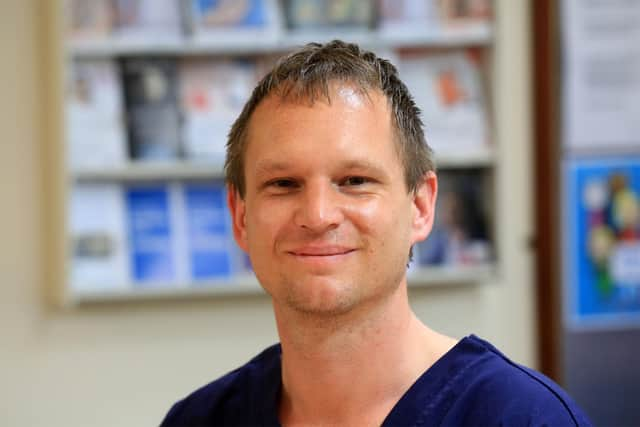On The Frontline: The reason to tell your doctor why you made an appointment


Today I will explain why it is useful to explain your own thoughts about a new illness.
A clumsy way for us to ask you about this may sound familiar!
Doctor; ‘What do you think is wrong?


What would you like me to do’?
Advertisement
Hide AdAdvertisement
Hide AdPatient; ‘Erm.. I don’t know… That’s why I came to see you.’
What do you think is wrong?
If you notice a change in your body, most people start to wonder what is going on.
You may also ask a friend or ‘Google’.
It helps the GP to know what possibilities have been running through your mind.
Only when we know the ideas or concerns that you have can we address these for you.
Advertisement
Hide AdAdvertisement
Hide AdImagine a patient who thinks they have symptoms of a rare cancer.
We may agree this is possible and look into this for you.
Alternatively, perhaps your symptoms can’t be explained by having this rare cancer.
Only if we know your concern can we effectively reassure you.
What would you like me to do?
When you request a consultation there is usually a reason; something you want.
Advertisement
Hide AdAdvertisement
Hide AdPerhaps your chest listening to, a diagnosis or reassurance?
Or you want a scan, a medication or a sick note.
The consultation goes far better if you can tell us what you are wanting.
It changes the questions we may ask you.
We may be able to give you what you want.
If we can’t give you what you want, we need to explain to you clearly why not.
If you are clear about what you have come for, we are better able to ensure you leave satisfied.
Advertisement
Hide AdAdvertisement
Hide AdSo in summary, if you have ideas about a possible diagnosis then tell us!
Consider why you made the appointment and tell us!
Knowing your concerns and expectations helps us give you a satisfying consultation.
If not, at least you’ll understand why we are now asking these questions!